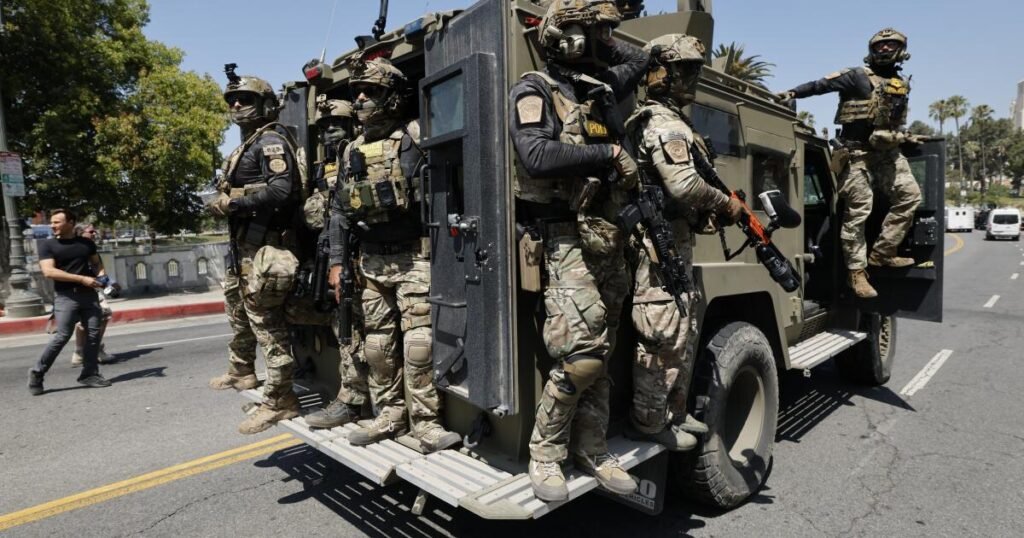Trump Administration Appeals Supreme Court Deportation Ban
The Trump administration filed a petition with the Supreme Court on Thursday, aiming to resume extensive deportation efforts in Southern California. This move seeks to overturn a ban on “roving patrols” that was put in place after a lower court deemed these tactics likely unconstitutional under the Fourth Amendment.
The original ruling, made on July 11, highlighted that heavily armed agents could not stop and question individuals on the streets of Los Angeles and surrounding areas without first establishing reasonable doubt about their immigration status. Importantly, such reasonable doubt can’t be solely based on factors like race, ethnicity, or appearance.
In support of their appeal, the administration pointed to a recent decision by the Ninth Circuit Court of Appeals, which upheld the original ruling that restricted these enforcement strategies.
Lawyers involved in the case quickly pushed back against the administration’s claims. “This is unprecedented,” remarked Mark Rosenbaum, part of a coalition of civil rights organizations and attorneys currently challenging actions taken against three immigrants and two U.S. citizens who faced chaotic arrests. “The briefs suggest the Supreme Court is essentially giving the go-ahead to target anyone in Los Angeles who appears Latinx.”
This legal move follows an incident where heavily armed Border Patrol agents confronted workers outside a Home Depot in Westlake, emerging from a moving truck in a surprising manner.
If the Supreme Court decides to take the case, there’s a growing concern that aggressive and indiscriminate enforcement tactics could be reinstated as standard practice. Eric J. Segall, a law professor at Georgia State University and an expert on the Supreme Court, expressed that “when it comes to law enforcement and immigration, the Supreme Court seems to be allowing the president considerable latitude.”
The Justice Department has consistently argued that temporary injunctions result in “improved and irreparable harm” to governmental operations. California’s Central District, being one of the most populated with undocumented residents, is particularly significant to this case.
The petition filed by the Justice Department also claims that around 10% of the local population consists of individuals living unlawfully in the U.S. Reports from the Department of Homeland Security suggest that nearly 4 million undocumented individuals are in California, with an estimated 951,000 in Los Angeles County alone as of 2019.
President Trump has prioritized mass deportation in his 2024 campaign, investing heavily in efforts aimed at arresting, detaining, and deporting immigrants. Although the Department of Justice maintained to the Court of Appeals that there were no rigid targets, others involved in planning these operations frequently mentioned goals of up to 3,000 deportations per day, summing to a million per year.
In recent weeks, various district and appeals courts have intermittently blocked or reversed numerous deportation efforts, resulting in circumstances such as Maryland fathers being sent back to prison in El Salvador, student protesters being released from detention, and even halting the construction of certain facilities.
Thus far, the bulk of the president’s immigration initiatives has faced scrutiny in the Supreme Court. Observers are left wondering whether, if the outcome doesn’t favor Trump, he might attempt to curtail judicial influence on his policies. “Even if they lose at the Supreme Court, I have serious doubts that they’ll stop,” Segall commented.







